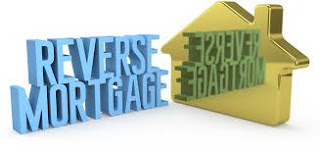Reverse mortgage
Reverse mortgage
A reverse mortgage or home equity conversion mortgage (HECM) is a special type of home loan for older homeowners (62 years or older) that requires no monthly mortgage payments. Borrowers are still responsible for property taxes and homeowner's insurance.
What is a Reverse Mortgage?
A type of mortgage in which a homeowner can borrow money against the value of his or her home. No repayment of the mortgage (principal or interest) is required until the borrower dies or the home is sold. After accounting for the initial mortgage amount, the rate at which interest accrues, the length of the loan and rate of home price appreciation, the transaction is structured so that the loan amount will not exceed the value of the home over the life of the loan.
Often, the lender will require that there can be no other liens against the home. Any existing liens must be paid off with the proceeds of the reverse mortgage.
A reverse mortgage is a loan available to homeowners, 62 years or older, that allows them to convert part of the equity in their homes into cash.
The product was conceived as a means to help retirees with limited income use the accumulated wealth in their homes to cover basic monthly living expenses and pay for health care. However, there is no restriction how reverse mortgage proceeds can be used.
The loan is called a reverse mortgage because instead of making monthly payments to a lender, as with a traditional mortgage, the lender makes payments to the borrower.
The borrower is not required to pay back the loan until the home is sold or otherwise vacated. As long as the borrower lives in the home he or she is not required to make any monthly payments towards the loan balance. The borrower must remain current on property taxes, homeowners insurance and homeowners association dues (if applicable).
Tags: reverse mortgage india | what is the downside to a reverse mortgage | reverse mortgage loan rbi
| reverse mortgage calculator | reverse mortgage meaning in malayalam | syndicate bank reverse mortgage loan | difference between mortgage and reverse mortgage | reverse mortgage lenders












No comments: